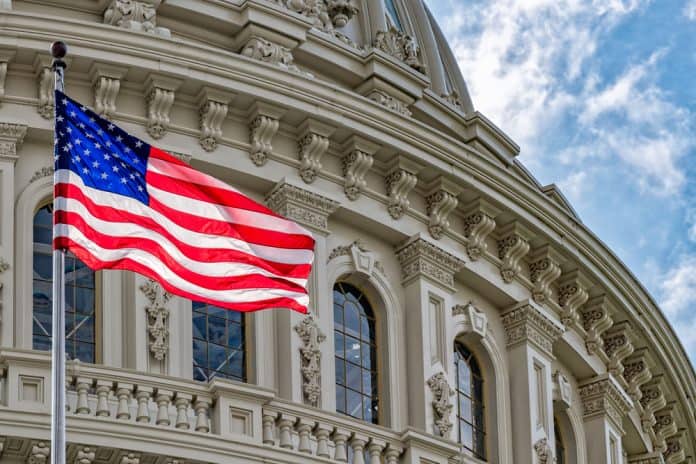Last year, Congress passed the Ocean Shipping Reform Act of 2022, the first major shipping legislation passed by lawmakers in a long time. Now, Congress is eyeing new legislation after almost a year.
Congress is planning to debate further legislation regulating the shipping industry in the coming weeks and months.
U.S. lawmakers in the House of Representatives, led by Congressman Jim Costa (D-California), are pursuing the Ocean Shipping Antitrust Enforcement Act. This new bill aims to repeal the foreign ocean carrier exemption within American antitrust laws, many of which date back to the early 20th century.
In the coming days, other bills such as the Safer Highways and Increased Performance for Interstate Trucking (SHIP IT) Act, which has also been introduced by Representative Costa along with Congressman Dusty Johnson (R-South Dakota), will be debated alongside the antitrust legislation.
The new legislation is already coming under fire from shipping industry groups.
Before debate has even started in earnest in the U.S. House, lobbying groups such as the World Shipping Council, have voiced strong concerns with the bill, with the criticism that it is too broad and will negatively affect shipping vessel pools, operations, prices, and the general landscape of the shipping industry.
Last year’s Ocean Shipping Reform Act was also criticized at the time, but criticism was much more muted, as the U.S. and the world were in the middle of the huge supply chain crisis and faced unique challenges such as last year’s baby formula shortages.
The World Shipping Council’s main argument against the bill is that, right now, most of the shipping industry is not consolidated and there is already a lot of competition, noting that there are no carriers with over a 20 percent capacity share. However, lawmakers are not convinced.
If passed, the new legislation would affect both shipping carriers and terminals.
In a statement, Congressman Jim Costa said:
“For far too long, foreign shipping monopolies have manipulated the ocean shipping industry and employed unfair trade practices, hurting American exporters and consumers. We have seen delays, congestion, and empty containers leaving American ports. It’s unfair and drives up costs. My legislation will hold foreign monopolies accountable, lower costs, and level the playing field in ocean shipping.”
But, other sponsors have eyed terminals, too, with Congressman John Garamendi (D-CA) noting that “Congress must restore balance at our ports and tackle the longstanding trade imbalance America has with China and other nations.” Representative Garamendi noted that if passed, the bill would tackle what he calls “exorbitant detention and demurrage fees.”
The bill is a long way from becoming a new law.
Before this bill, or any shipping-related legislation, can become law, it has to go through congressional committees in both the U.S. House and Senate, and pass each chamber before going to President Biden for his signature. That process can take months or longer. One thing is for sure: the final bill is likely to change before it ever sees a chance at passage.




